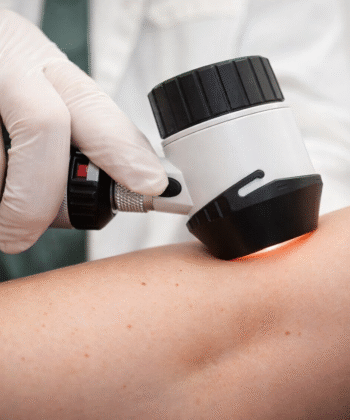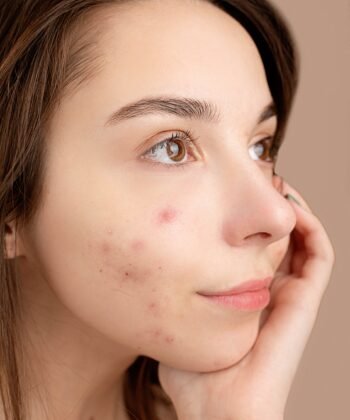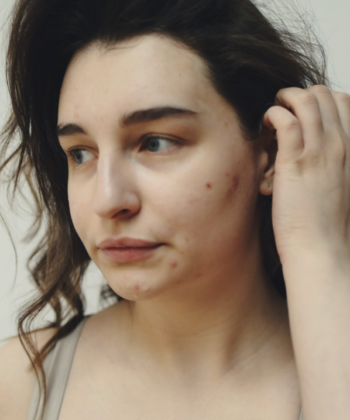About The Dermatology Clinic London
Trusted specialists for dermatology
Our team of hand-picked medical skin experts all share the same ethos, to provide the very best in diagnosis, treatment and surgery for skin conditions and skin cancer in one clinic.


A truly world class team, in a world class location
We have Dermatologists whose specialist areas cover complex medical Dermatology - treating rashes like psoriasis and eczema, skin cancer/mole checks along with Paediatric Dermatology.
We are unique in that joining the Dermatologists are a prize-winning plastic surgeon, a Clinical Psychologist who specialises in the psychological impact of skin problems and an internationally renowned Consultant Dermatopathologist, an expert in diagnosing biopsies of skin lesions under the microscope.
Rest assured that no matter what your skin problem, you are in the best possible hands with the support of a world-class team of physicians.

Dr. Dan Glass
Consultant Dermatologist
Specialized in acne, eczema and rashes, as well as skin cancer.

Dr Reina Wujanto
Consultant Dermatologist
Specialist in Dermatology, with an interest in contact allergy.

Dr Björn Thomas
Consultant Dermatologist
Specialised in Dermato-Oncology and holds a PhD in atopic eczema.

Mr Dan Marsh
Consultant Plastic Surgeon
Specialised in the surgical treatment of skin cancer, breast surgery and facial re-construction.

Dr Alistair Robson
Consultant Dermatopathologist
Dermatopathologist with over with 15 years’ worth of experience in teaching and research.

Dr Reena Shah
Clinical Psychologist
Expert in Psychodermatology, using psychological therapy to treat patients' skin disorders.
We are unique in that joining the Dermatologists are a prize-winning plastic surgeon, a Clinical Psychologist who specialises in the psychological impact of skin problems and an internationally renowned Consultant Dermatopathologist, an expert in diagnosing biopsies of skin lesions under the microscope.
Rest assured that no matter what your skin problem, you are in the best possible hands with the support of a world-class team of physicians.
Learn more about skin conditions

The Importance of Checking Your Moles
Protect yourself from melanoma with regular self-assessment. Learn the signs to look out for and when to see a dermatologist. Read more for essential insights.

BCC vs SCC
A skin cancer diagnosis raises immediate questions. If you've been diagnosed with basal cell carcinoma (BCC) or squamous cell carcinoma (SCC), you need clear information about your condition and treatment options.

Melanoma and Ultraviolet Light: What’s the Link?
According to Cancer Research UK, around 85% of melanomas in the UK are caused by too much ultraviolet radiation. The number of people being diagnosed with this type of cancer has increased and is now the 5th most common cancer in the UK.

The Truth About Acne
Acne is a debilitating disease that affects over 18 million people in the UK. A lot of people say it’s a teenage issue that you can grow out of, but it affects many people right through to their adult life and can completely take over people’s lives.

Pregnancy Acne: What Are the Causes?
Pregnancy acne, stemming from hormonal shifts, affects up to 43% of expectant mothers, often causing breakouts and discomfort. Learn about the causes, prevention tips, and expert solutions at The Dermatology Clinic London.

Acne in Teens and Young Adolescents
One of the reasons teenage acne flares is as a result of hormonal changes in the body that cause the glands under the skin to produce excess sebum. It is these hormones that play a major role in influencing how the sebaceous glands function.

Skin Allergies – Why they Happen and How to Take Care of Them
Allergies are the most common chronic disorder in the United Kingdom; it is estimated that around a quarter of brits will be affected by some kind of allergy during their lives, a number that is expected to increase exponentially going forward.

Why Does My Mole Itch?
Itching or pruritus is often a sign of dryness or irritation of the skin’s surface. As a result, our skin’s nerve endings, also known as pruriceptors, are stimulated.

The Impact of Diet on Acne: What You Eat Matters
Diet plays a critical factor in a person’s overall health and well-being. People with a healthy balanced diet tend to live longer and have a lower risk of developing serious health problems such as cardiovascular disease and type 2 diabetes.
What our patients say…
Dr Glass put me on a course of medication which was successful in treating this condition. I have now been happily discharged 🙂
Throughout my treatment, I found Dr Glass to be extremely conscientious, caring and thorough. He fully explained all the available treatment options to me and possible side effects. I felt I was properly informed.
He also explained to me that skin is very unpredictable and if I have a predisposition to skin allergies, then flare-ups could recur in the future. If this happens, I would have no hesitation in consulting with Dr Glass again, if need be. I would also have no hesitation in recommending him to others.
His knowledge, expertise and attention to detail, is not only reassuring but enables you to build trust and confidence going forward in whatever treatment path is required.
I have recommend him to family
and friends for diagnosis and treatment, as I believe Daniel is the leading consultant in his field for Northwest London.
When I saw Dr Glass in 2017, he diagnosed and treated my skin issue very swiftly. Within weeks I was looking well but mentally that boosted my confidence too.
I needed to see him again and I was not going anywhere else, as he was the right person to treat my skin condition again. Dr Glass once again diagnosed and treated my skin condition on a different issue very quickly and within 6-7 weeks, my skin feels new.
Thank you once again Dr Glass; I will not hesitate to recommend you to anyone seeking your services as I know they will be in the best care.











